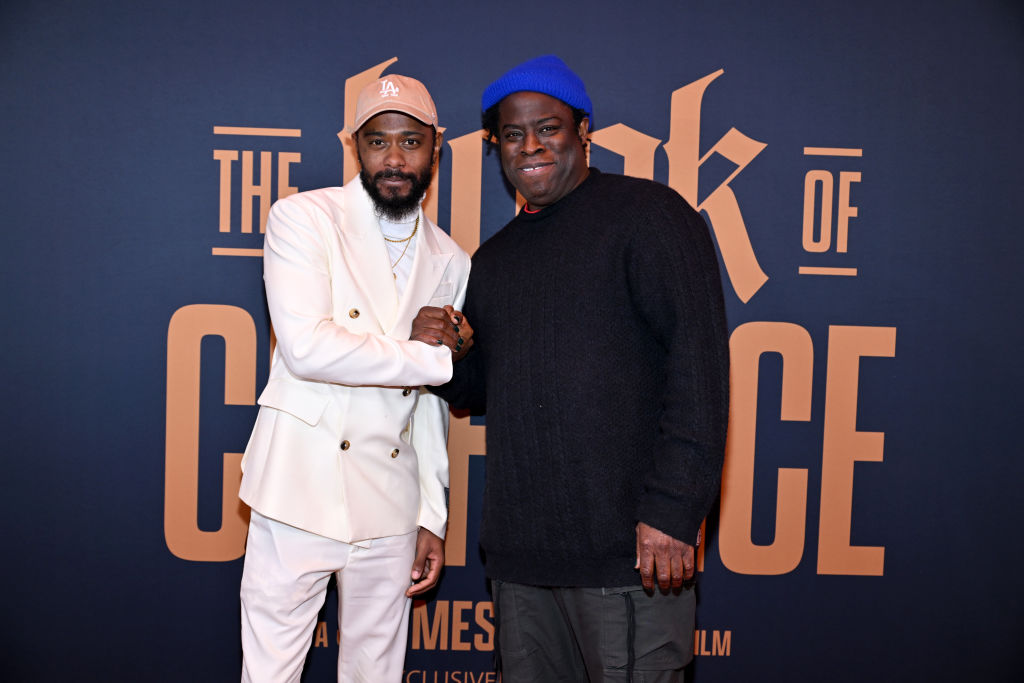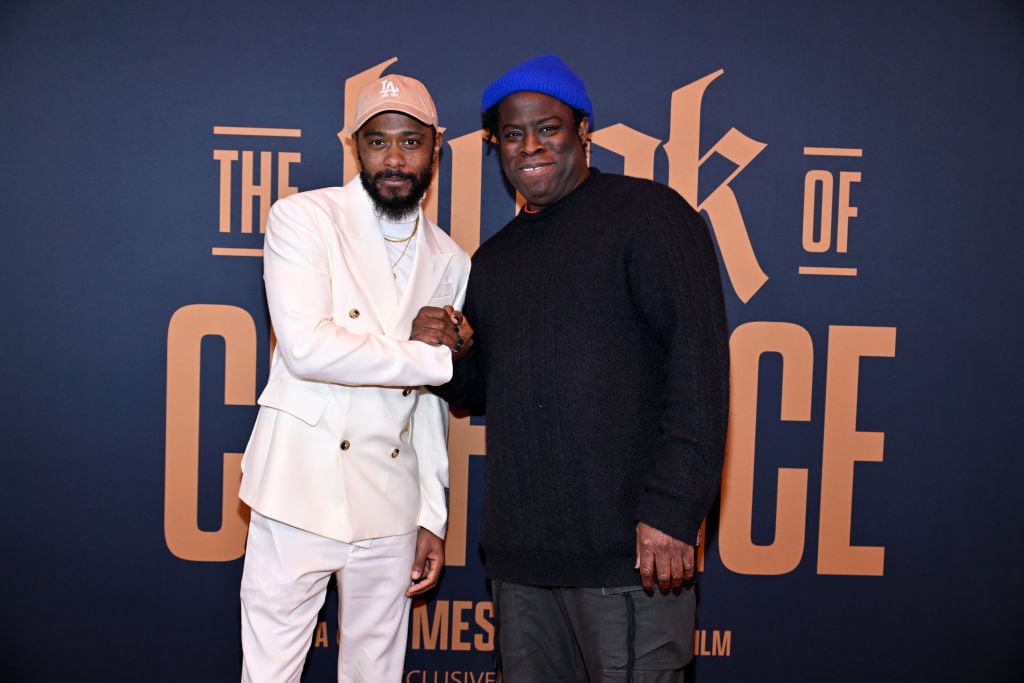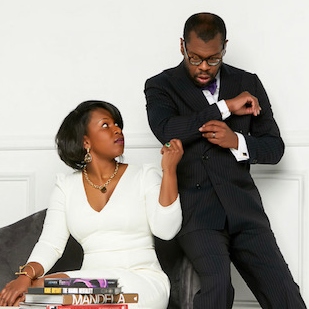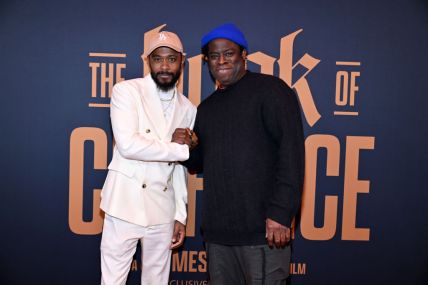‘Peace to the God’: Unpacking ‘The Book of Clarence’ and the audacity of divinity
Jeymes Samuel’s controversial, “The Book of Clarence” film sparks conversation about acknowledging the divine in ourselves and others. “Notes on […] The post ‘Peace to the God’: Unpacking ‘The Book of Clarence’ and the audacity of divinity appeared first on TheGrio.

Jeymes Samuel’s controversial, “The Book of Clarence” film sparks conversation about acknowledging the divine in ourselves and others.
“Notes on faith” is theGrio’s inspirational, interdenominational series featuring Black thought leaders across faiths.
“Ye are gods.”
To this day, this phrase, as it appears in Psalm 82:6-7 (King James Version), remains one of the most provocative quotes from the Bible, particularly when uttered by Black people. Among certain Christian circles, contention over its meaning was newly revived in the rollout of the new film “The Book of Clarence,” written and directed by writer-director Jeymes Samuel (“The Harder They Fall”). Shifting the culture while turning the traditional biblical narrative on its head, Samuel adopted a greeting derived from the “Five Percenter” philosophy pioneered by Brother Clarence 13X, which in turn closely resembles an ethos found in the Hindu greeting “Namaste.”
“Peace to the God. I see the God in them, they see the God in me.”
During an intriguing recent interview on “Sway in the Morning” alongside LaKeith Stanfield, who plays the titular character), Samuel shared that he had “sat on the script for years” because he had yet to meet Stanfield — emphasizing a recurring theme in the conversation about patience, contemplation and intention. Having watched several “classic” films inspired by biblical stories that depicted all the characters as white rather than more logically from the East, such as “The Ten Commandments” (1956) and “Ben-Hur” (1959), Samuel sought to tell a story where the people looked like him — and like many of us.
It was an impetus he attributed to his own deep faith practice. Among the many jewels dropped in the interview was Samuel’s acknowledgment of the divine in others. Musing that “the older we get, we have less and less faith in ourselves,” he referenced pushback to his use of self-referential praise, noting, “Nobody would have a problem if I said, ‘peace, my n–gas,’ Yet, there’s a problem if I say ‘Peace to the God.’”

Further refining his point, Samuel resolved that there is power in acknowledging God in ourselves. “I am not saying, ‘We are the divine.’ I am saying, “We are of the divine.’”
Samuel challenges colonized biblical narratives while encouraging a conversation about acknowledging the divine within ourselves and others. What is revealed in some people’s resistance to being referred to as gods or of the divine?
Samuel is far from alone in his perspective. It reverberates through the diaspora, often resonating deeply with descendants of the enslaved. In the grand timeline and universe of Black existence on Earth, a powerful and enduring tradition has emerged — the tradition of the Black Messiah. In his 1982 book “Black Messiahs and Uncle Toms: Social and Literary Manipulations of a Religious Myth,” Black Messianic scholar Wilson Jeremiah Moses described the phenomena as the “perception of a person or a group, by itself or by others, as having a manifest destiny or a God-given role to assert the providential goals of history and to bring about the kingdom of God here on Earth.”
“The Book of Clarence” is just the latest in a series of contemporary films and albums that have used the Black Messiah as a device. Over a decade ago, in a discussion with BBC Radio 1’s Zane Lowe about his single “I Am a God,” music producer, rap artist, and perennial provocateur Ye (formerly Kanye West) made a similar remark in response to backlash over the concept of the song and his album “Yeezus.” He asserted that the controversy was rooted in internalized racism that manifests as self-hate.
“[Self-hate] works on itself,” said Ye. “It’s like the real estate of racism, where just like that, when someone comes up and says something like, ‘I am a God,’ everybody says, ‘Who does he think he is?’ I just told [you] who I thought I was – a god. I just told you, that’s who I think I am. Would it have been better to have a song that says, ‘I Am a N–ga’? Or if I had a song that says, ‘I’m a Gangsta’? Or if I had a song that says, ‘I’m a Pimp’? All those colors and patinas fit better on a person like me, right? But to say you are a god, especially when you got shipped over to the country you’re in, and your last name is a slave owner’s, how could you say that? How could you have that mentality?”
It’s a conversation worth exploring — but are we ready to have it? Despite Samuel’s clarification about the God in us, there is already evidence that his message is drawing ire, much like previous works that dared to challenge our long-held perceptions. In 2014, the Adult Swim series “Black Jesus” received comparable attention for speculating about a Jesus who emerges as a weed-smoking savior in Compton, California. There was even a sexist-racist 2017 protest when Octavia Spencer played God in “The Shack,” as Christians struggled to articulate why God could not be embodied by a Black woman.
Recommended Stories
However, while some faith circles consider the mere premise of “The Book of Clarence” blasphemous, there are many on the religious spectrum unfazed by the question, “How dare you call yourself God?” Progressive leader Father Divine preached that he was God incarnate, while the famed Rev. Ike was labeled a heretic for teaching his followers about the “God in us.”
And yet, there is something healthy about imagining the ultimate experience of being “of the divine.”
As the song goes, “What if God was one of us?”
In what ways have you been off-put by the perspective that you are of the divine? Do you find this sacrilegious? If so, why?
As faith leaders, we have found in our own faith practice — personally, in our marriage, and in our various public roles — great empowerment through this mindset. What if this posture doesn’t call us to avoid our circumstances, but rather puts into perspective who we are and whose we are? What else have we got? As Samuel said: “Faith is really all we have… The only thing that gets us through is our faith.”
What if there is actually a benefit to experiencing provocative art because it compels the offended community to reassert and redefine itself in response to the provocation? Believe it or not, communities often seem to emerge stronger from the tension.
To our hearing, the real call in this moment is to consider: Who do we have faith to become? To what extent can we actually look, feel, move, think, and be divine? And in what ways might we readily experience the divine in each other…
“Ye are gods,” has been echoed throughout the traditions of the world. So, we leave you with this prompt to reflect on what it might be like to move through the world in your divinity.
With that said family, “Peace to the God.” We honor the divine in you.

Rev. Dr. Alisha Lola Jones is a faith leader helping people to find their groove in a fast-paced world, as a consultant for various arts and faith organizations and professor of music in contemporary societies at the University of Cambridge in Cambridge, England. She is an award-winning author of Flaming? The Peculiar Theopolitics of Fire and Desire in Black Male Gospel Performance (Oxford University Press). For more information, please visit DrAlisha.com.
Rev. Calvin Taylor Skinner is dedicated to empowering frontline communities in Knoxville, Tenn., and the United Kingdom. He uses faith and policy to address energy justice, criminal justice reform, voter education/mobilization, electoral politics, and global affairs. Along with his wife, Rev. Dr. Alisha Lola Jones, they lead InSight Initiative, a consulting firm that focuses on capacity building and live events production.
Never miss a beat: Get our daily stories straight to your inbox with theGrio’s newsletter. Download theGrio mobile apps today! Listen to ‘Writing Black‘ with Maiysha Kai.
The post ‘Peace to the God’: Unpacking ‘The Book of Clarence’ and the audacity of divinity appeared first on TheGrio.

















![Brad Pitt Details Battle With Alcoholism and Recovery: ‘I Needed to Wake the F–k Up’ [Video]](https://www.lovebscott.com/wp-content/uploads/2025/06/9f9717940e7e46a09cb3a7f1ceabcb14_md.jpg.webp)

![TV Trailer: ‘Real Housewives of Atlanta’ [Season 16 Finale]](https://150893825.v2.pressablecdn.com/wp-content/uploads/2025/06/rhoa-season-16-finale-tgj-scaled.jpg)
